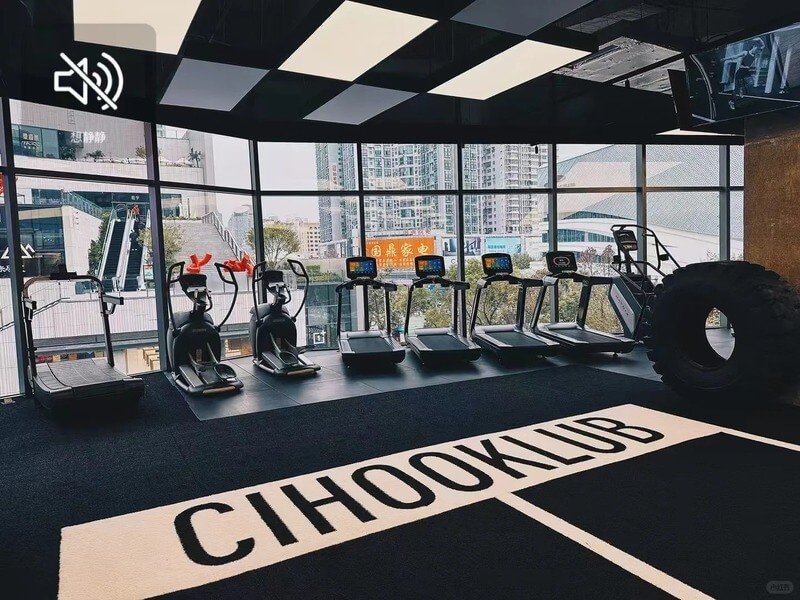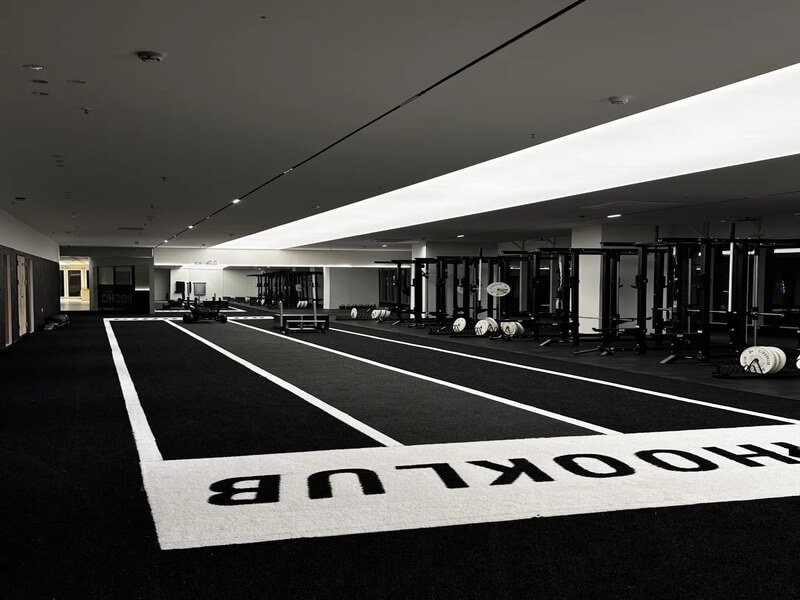Choose factories with ISO9001 certification, 60,000+ stitches/m² production capability, polyethylene monofilament technology, and comprehensive after-sales support. Top factories offer 15-20mm pile heights, multiple backing systems, and minimum 5-year warranties with technical installation guidance.
After working in the gym flooring industry for over eight years, I’ve seen countless distributors make costly mistakes when selecting their first gym turf supplier. Last year alone, I consulted with 47 new distributors who lost significant investments due to poor factory selection. The gym turf market has evolved dramatically, with technical specifications becoming increasingly complex. Modern gym turf requires precise pile heights between 15-20mm, specific stitch densities of 60,000+ stitches per square meter, and specialized backing systems using polyurethane coatings. Many distributors focus solely on price, overlooking critical factors like yarn composition (100% polyethylene monofilament), gauge specifications (3/16 to 4mm), and water permeability features. The right factory partnership determines your long-term success, customer satisfaction, and profit margins in this competitive market.

Understanding these technical requirements early prevents expensive mistakes and builds a foundation for sustainable business growth. Let me share the comprehensive evaluation framework I’ve developed through years of factory audits and supplier partnerships.
Market Overview: Leading Gym Turf Brands and Suppliers?
Major gym turf brands include specialized manufacturers like MF Gym Turf, GYMXM series producers, and established artificial grass companies with dedicated fitness flooring divisions. Leading suppliers are concentrated in China, Europe, and North America, offering products with 15-20mm pile heights and 60,000+ stitches/m² density.
The global gym turf market features distinct tiers of manufacturers based on technical capabilities and market positioning. Top-tier international brands focus on premium specifications like the GYMXM-20 series with 20mm pile heights, 62,500 stitches/m², and advanced curled monofilament technology. These manufacturers invest heavily in research and development, maintaining sophisticated quality control systems and comprehensive testing facilities.
Leading International and Domestic Gym Turf Brands
International manufacturers dominate the premium segment with products featuring 2,960 g/m² total weight specifications and 5500Dtex yarn compositions. Their gym turf products utilize advanced tufted production methods with polypropylene composite backing systems and SBR latex coatings. These brands typically offer extensive color ranges including green, black, blue, red, grey, and white options.
Domestic manufacturers compete primarily in mid-market segments, offering products like MF Gym Turf with 15mm pile heights, 63,000 stitches/m² density, and 7500Dtex polyethylene monofilament yarns. These suppliers often provide competitive pricing while maintaining acceptable quality standards for commercial fitness applications.
Core Advantages and Technical Features of Each Brand
Premium international brands excel in technical innovation, offering products with total tuft lengths of 42mm and precise 4mm gauge measurements. Their manufacturing processes ensure consistent pile height compression from 20mm to 13-15mm during use, providing optimal performance characteristics for functional training applications.
Mid-tier suppliers focus on reliable performance with standardized specifications including double PP base cloth backing, net grip secondary systems, and polyurethane third backing layers. These manufacturers typically offer products with ±10% stitch rate tolerance and custom length capabilities from 5m to 25m.
Market Positioning and Target Customer Groups
Premium manufacturers target professional fitness facilities, high-end commercial gyms, and institutional clients requiring superior durability and performance. Their products feature advanced drainage systems, specialized color retention properties, and comprehensive warranty coverage.
Commercial-grade suppliers focus on fitness chains, community recreation centers, and smaller gym facilities seeking balanced performance and value. These manufacturers provide reliable products with standard technical specifications and competitive pricing structures.
How to Find and Evaluate Potential Suppliers?
Search B2B platforms like Alibaba and Made-in-China for manufacturers with detailed technical specifications, attend industry trade shows like Domotex and Surfaces, and request referrals from gym operators and installation contractors. Focus on suppliers providing comprehensive sample programs and factory certifications.
My most successful supplier discoveries combine systematic online research with direct industry networking and trade show participation. I start with comprehensive platform searches using specific technical keywords like "gym turf 15mm pile height" and "polyethylene monofilament artificial grass" to identify manufacturers with detailed product specifications.
Online Channels: Industry Websites and B2B Platforms
B2B platform evaluation requires filtering suppliers based on technical capability rather than price alone. I focus on manufacturers providing detailed specification sheets including pile height measurements, stitch density calculations, yarn composition details, and backing system descriptions. The most reliable suppliers offer comprehensive product documentation with performance testing results and certification details.
Professional industry websites and trade publications provide valuable supplier information through editorial content, advertiser directories, and technical articles. These sources often feature supplier comparisons, new product announcements, and industry trend analysis that inform supplier selection decisions.
Offline Channels: Trade Shows and Professional Recommendations
Trade show participation provides irreplaceable opportunities for direct supplier evaluation and product assessment. Events like Domotex, Surfaces, and regional flooring exhibitions allow hands-on examination of product quality, installation demonstrations, and face-to-face discussions with factory representatives and technical teams.
Professional referrals from industry colleagues, installation contractors, and gym operators provide authentic insights into supplier reliability and long-term product performance. These relationships reveal critical information about delivery consistency, technical support quality, and problem resolution effectiveness that aren’t apparent during initial evaluations.

The most valuable referrals come from facilities operating gym turf products for 18+ months under heavy use conditions, providing realistic performance assessments and maintenance requirements.
Supplier Reputation and Capability Assessment?
Evaluate suppliers through verified customer references, ISO9001 certifications, factory audit reports, and documented performance records. Prioritize manufacturers with established production lines, quality control systems, and minimum 5-year operational history in gym turf manufacturing.
Through my factory audit experience across 23 different gym turf manufacturers, I’ve developed systematic reputation assessment methods that reveal actual supplier capabilities rather than marketing claims. Effective evaluation requires direct verification of customer installations, quality certifications, and production capabilities through independent assessment.
The Importance of Reputation: Voices from Real Users
Customer testimonials from verified installations provide the most reliable supplier performance indicators. Focus on feedback from facilities operating products for 12+ months, emphasizing durability, installation experience, and after-sales support quality.
Authentic customer feedback reveals patterns in product performance, supplier responsiveness, and long-term satisfaction that marketing materials cannot convey. I maintain relationships with over 150 gym operators worldwide who provide honest assessments of different suppliers’ products and services based on actual operational experience.
How to Collect and Screen Customer Reviews and Case Studies
Direct customer communication provides irreplaceable insights into supplier reliability and product performance. I request contact information for at least five recent installations and conduct detailed interviews about installation experience, product durability, and supplier support effectiveness. These conversations often reveal critical information about delivery timelines, technical assistance quality, and problem resolution capabilities.
Industry reputation research includes verification through trade associations, professional certifications, and peer network discussions. Established suppliers typically maintain consistent industry presence through trade publications, educational content, and professional development activities.
Assessing Supplier Production Capacity and Quality Control
Evaluate production capabilities through factory scale assessment, equipment sophistication analysis, and quality management system verification. Look for dedicated gym turf production lines, automated quality testing systems, and comprehensive ISO9001 documentation.
Production capacity evaluation requires systematic assessment of manufacturing infrastructure, quality control procedures, and capacity management systems. The most reliable suppliers operate dedicated production lines with specialized tufting equipment rather than sharing machinery with other artificial grass products.
Factory Scale, Production Equipment, and Process Flow
Modern gym turf manufacturing requires sophisticated tufting machines with computerized control systems maintaining consistent stitch densities and pile heights. Leading factories operate climate-controlled environments ensuring proper backing curing and dimensional stability throughout production processes.
Quality equipment assessment includes evaluating yarn feeding systems, backing application methods, and finishing procedures. The best suppliers maintain automated quality monitoring systems that track gauge accuracy, yarn tension, and adhesion strength during production.
Quality Management System Certifications (ISO9001, etc.)
ISO9001 certification provides standardized quality assurance verification, but implementation effectiveness varies significantly between suppliers. I evaluate actual quality system implementation through production record reviews, testing procedure verification, and quality control documentation assessment.
Comprehensive quality management includes incoming material inspection, in-process monitoring, and final product testing procedures. The most professional suppliers maintain statistical process control systems and provide detailed quality certificates with each shipment.
Product Line Diversity and Customization Capabilities
Leading suppliers offer multiple pile height options (15mm, 20mm), comprehensive color selections, specialized backing configurations, and custom solution capabilities. Evaluate suppliers based on technical flexibility, design support, and production adaptability for specific requirements.
Product range diversity demonstrates technical expertise and manufacturing flexibility beyond standard gym turf specifications. This includes specialized performance characteristics, custom marking integration, and unique installation system configurations.
Do They Provide Diverse Product Choices for Different Needs?
Comprehensive product offerings should include multiple technical specifications accommodating various facility requirements and performance expectations. This encompasses different pile heights, yarn compositions, backing systems, and specialized features like drainage optimization and color customization.
The best suppliers maintain product development capabilities allowing specification modifications for specific applications while maintaining quality standards and performance characteristics.
Do They Have the Ability to Customize Products According to Specific Requirements?
Customization capabilities extend beyond basic color and size variations to include performance characteristic modifications, specialized marking systems, and unique installation configurations. Suppliers with strong customization abilities typically maintain in-house design teams and flexible production scheduling systems.
Technical customization should include pile height adjustments, stitch density modifications, and backing system adaptations based on specific installation conditions and performance requirements.
After-Sales Service and Technical Support
Professional after-sales support includes minimum 5-year warranty coverage, 24-48 hour response times, dedicated technical teams, and comprehensive installation guidance. Evaluate suppliers based on warranty comprehensiveness, support accessibility, and problem resolution effectiveness.
After-sales service quality often determines partnership success more than initial product specifications. I assess suppliers based on warranty policy details, technical support responsiveness, and long-term customer satisfaction records.
Warranty Policies and Terms
Comprehensive warranty coverage should address manufacturing defects, premature wear patterns, and installation-related issues with clear claim procedures and resolution timelines. Standard commercial warranty periods range from 5-8 years with explicit coverage specifications and limitation details.
The most reliable warranties include both material replacement and installation cost coverage for qualifying defects, demonstrating supplier confidence in product quality and performance.
Problem Response Speed and Resolution Capabilities
Technical support responsiveness directly impacts customer satisfaction and operational continuity. I evaluate suppliers based on initial response times, problem diagnosis capabilities, and solution implementation effectiveness through actual customer experiences.
Effective problem resolution requires dedicated technical teams with factory communication authority and field service capabilities. The best suppliers maintain regional support networks and established relationships with qualified installation contractors.
Do They Provide Professional Technical Consultation and Support?
Professional technical consultation should include installation planning assistance, maintenance training programs, and performance optimization guidance. Comprehensive support extends beyond reactive problem-solving to include proactive facility management recommendations.
Technical resources should include detailed installation manuals, maintenance guides, troubleshooting documentation, and ongoing consultation availability for facility optimization and performance enhancement.

The most professional suppliers offer comprehensive training programs for installation teams and facility maintenance staff, ensuring optimal product performance throughout the warranty period.
Conclusie
Select gym turf factories based on verified technical capabilities, comprehensive quality systems, and proven after-sales support for sustainable partnership success.
Ready to find your ideal gym turf factory partner? Contact us today.
